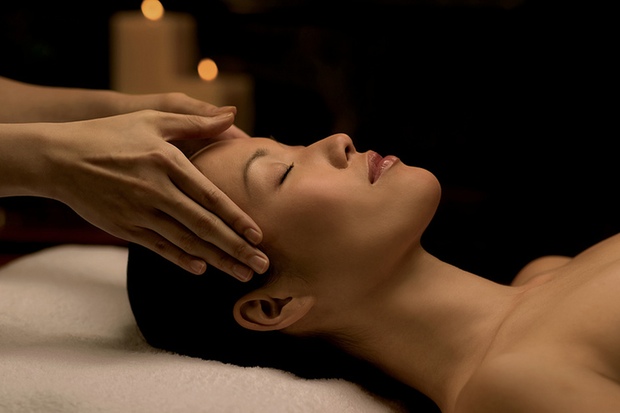Facials often conjure thoughts of a relaxing day at the spa and skin as soft as a baby’s behind. But facials can have their downsides, says Dr. Tina Alster of the Washington Institute of Dermatologic Laser Surgery. From estheticians who tend to poke and prod to the use of bacteria-creating steamers, the procedures can often do more harm than good to our skin. We asked Alster to give us the 411 on the treatment and tell us when it’s time to skip a trip to the spa and head to a dermatologist.
What is the primary reason for getting a facial?
There tend to be two primary reasons. One is more of a general cleaning, relaxing, hydrating experience where people just like to pamper themselves. That might mean getting a facial seasonally to clean everything out, or maybe it’s before a big event and you want to look hydrated and rested. The other aspect involves people who are starting to experience problems with their skin and aren’t already plugged in with a dermatologist.
What is a microdermabrasion facial, and when is it a good idea to get one?
Certainly nobody with sensitive skin [should get one]. You should avoid it like the plague, since it causes more irritation in the skin. The best skin for microdermabrasion facials tends to be on oily side. Men do well with microdermabrasion facials because they have larger, oily glands and their skin is thicker and less susceptible to sensitivity. Most estheticians, when they clean, they extract and then massage and moisturize. [Microdermabrasion facials] are between cleaning and extracting. You clean the skin, then you do an extraction of the dead skin surface cells.
What are some common misconceptions about facials?
I think the main thing about facials is that a facialist or esthetician is not a dermatologist. Don’t be afraid to tell somebody you don’t want your skin picked. When I have a facial, I don’t allow steam and I don’t allow picking. I request hot towels to dilate the capillaries. And make sure they use good, fragrance-free products so you don’t end up smelling like a fruitbox.
Do dermatologists do facials?
We do provide medical facials, targeted to a few avenues. One would be people who have sensitive skin who have a tendency to have eczema. We do a facial using non-irritating cleansers and hydrators, but in addition we may add an LED treatment to calm inflammation in the skin. It’s a combination of a relaxing facial with non-allergenic substances. Secondarily, we have a facial for acne. At the same time, as one is getting a cleansing, they are having a microdermabrasion to clean the pores out more.
Are at-home facials safe?
I think you can do your own mini facials at home using one of those Clarisonic brushes to clean. That will clean your skin just as well as a facial. I don’t like steaming, which opens pores but blows around bacteria and makes it hard to clean out.
How far ahead should you schedule a facial before an important event?
That’s a good question, because as anybody who has had a facial knows, often it’s nice to have it done right before because your skin is best hydrated. What you don’t want to do is have a facial, wait two days, then have a big breakout, because some facials massage bacteria back into our pores. So I love facials right before an event and use that as a base. But what I would say is don’t go to a facialist who ends up poking and prodding right before an event.
Should people with sensitive skin skip facials?
I think facials are helpful in the same way massages are helpful–they’re more helpful for relaxing people. My problem with many facials is that most facialists are trained to use steamers, which I think are more injurious than helpful. For instance, when we want to relax, we’ll use a hot or warm towel rather than blow steam on your face. I tend to see people who have problem skin and when they’ve been to a facialist, they make it worse–not because it’s intentional, but because they don’t have the facility to take it up a notch. I don’t mean to slam estheticians, but your money is better spent seeing somebody who has an MD so they can dispense something that can do a little bit more.



















